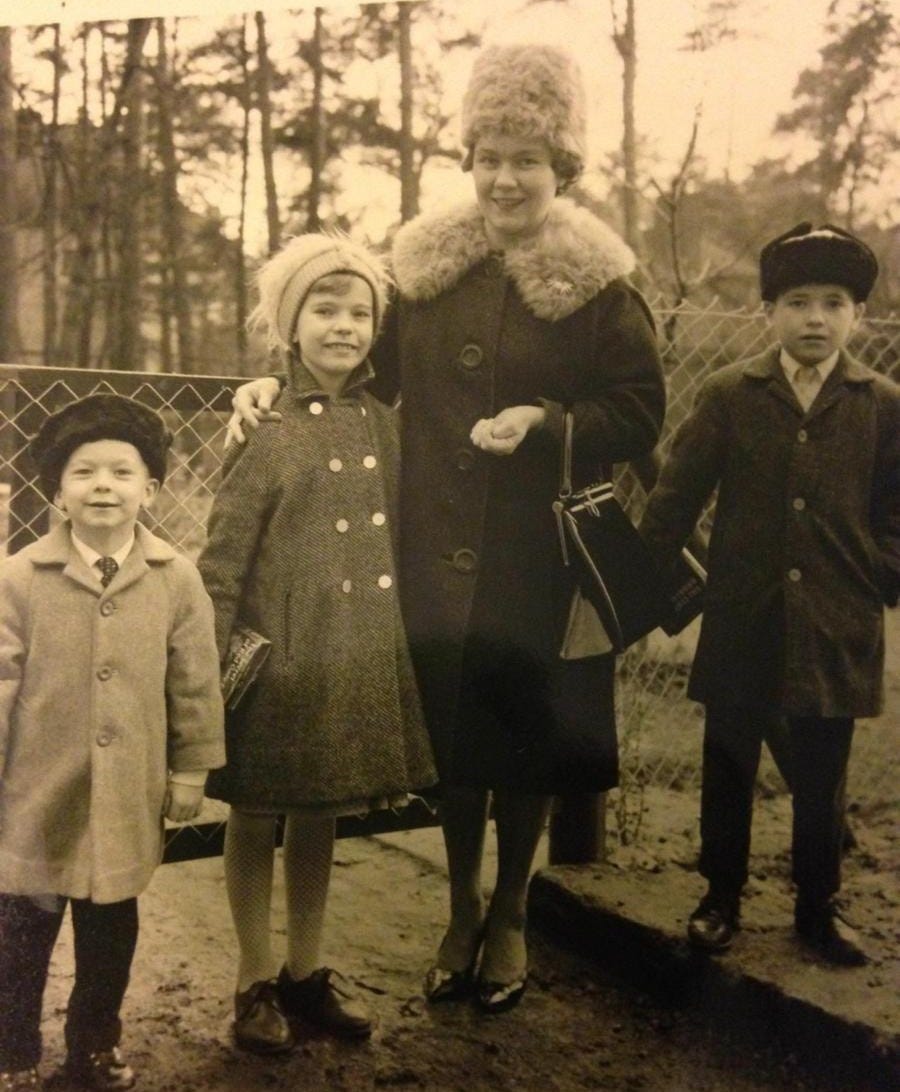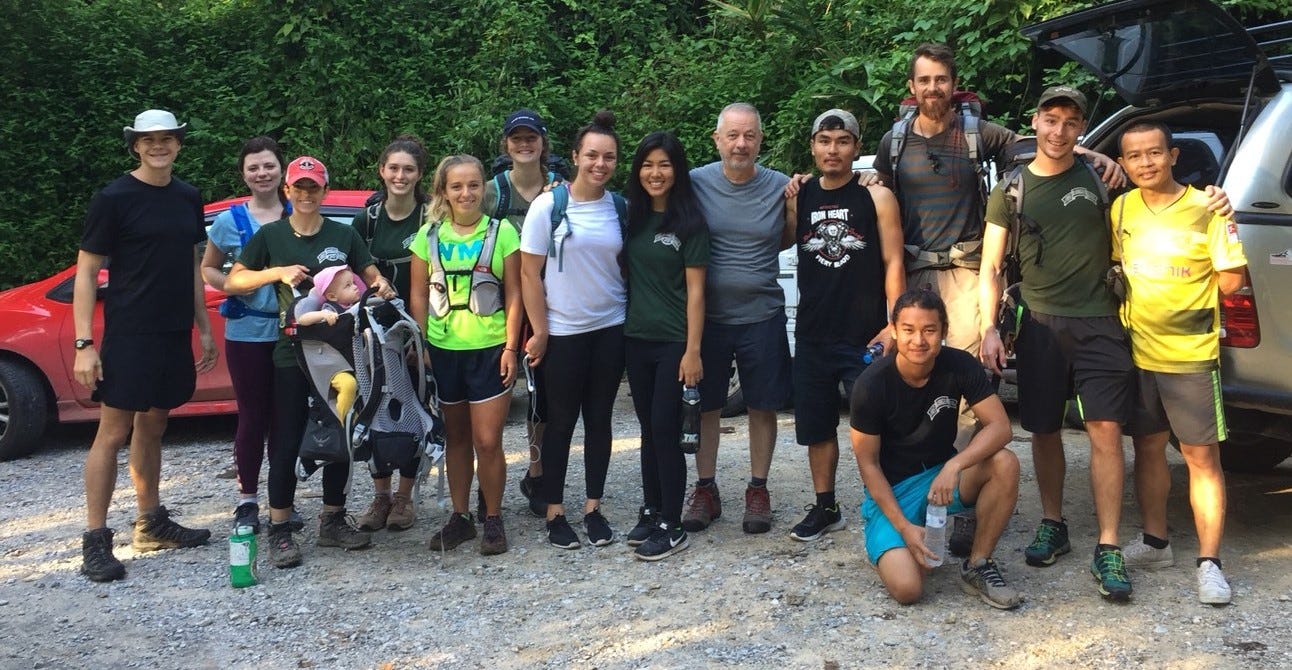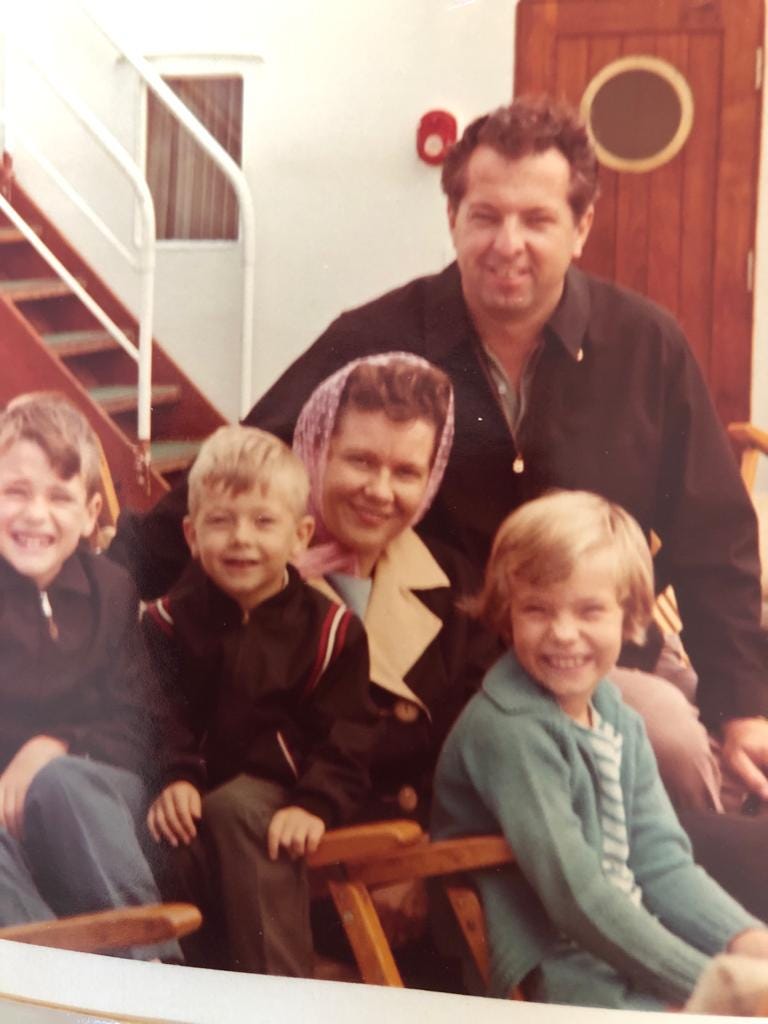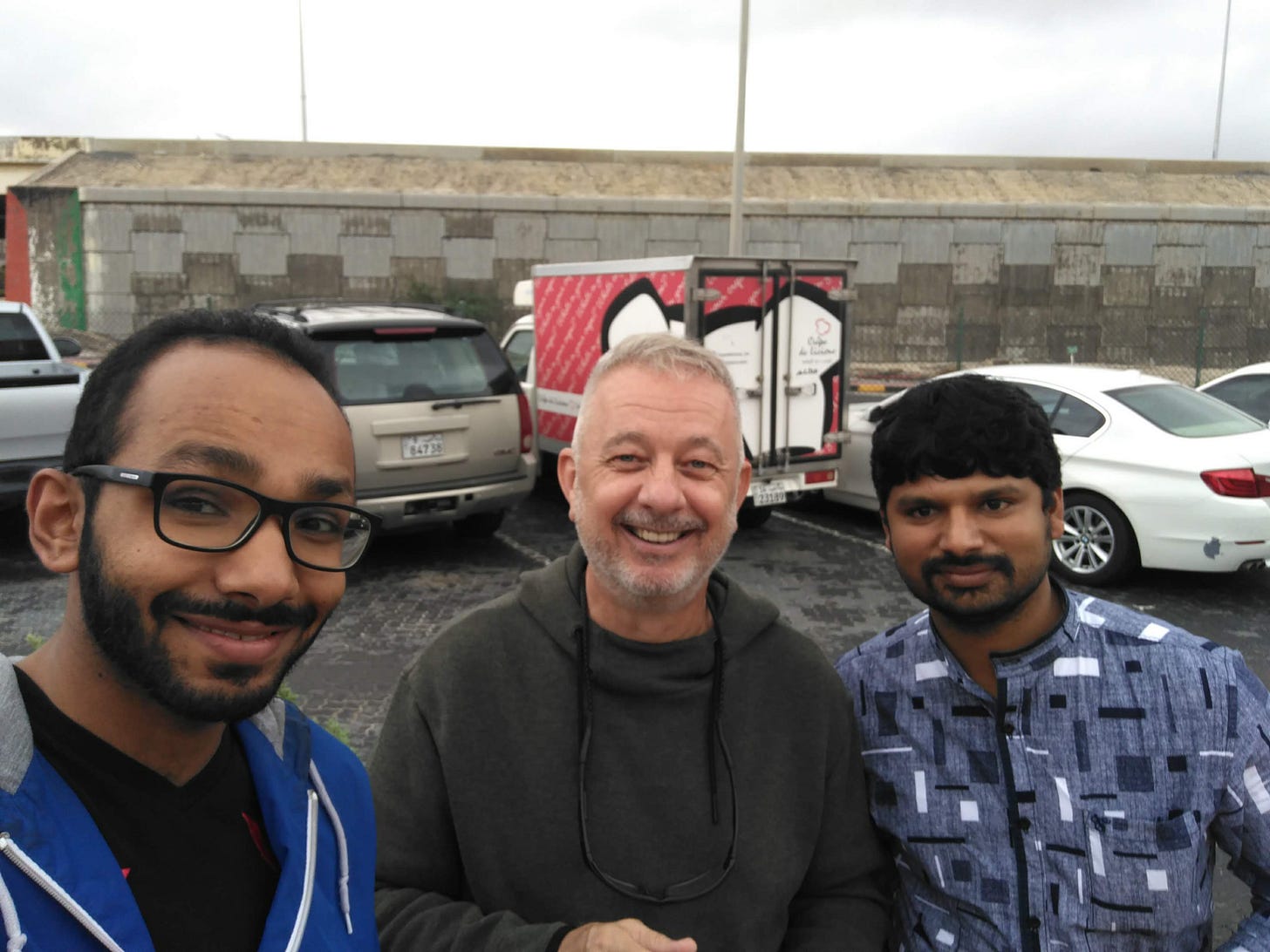A Third Cultural Kid's Identity Crisis
Navigating Dual Identities: The Challenges and Rewards of Growing up as an American Third Culture Kid in Germany
Introduction to My Journey as a Third-Culture Kid (TCK)
After turning eighteen, I moved from Germany to the USA for College. Following college, I worked at Ted Turner’s Cable News Network in the United States for eight years, where I had the opportunity to travel extensively and gain a broader view of the world.
Eventually, I left CNN, relocated to Florida, and pursued a new direction in respiratory therapy. At 32, shortly after completing my respiratory therapy studies, I went on a European vacation with four friends, bicycling from London to Munich, Germany. It was during this trip that I met an American missionary in Germany who introduced me to the concept of Third-Culture Kids (TCKs). She explained the “why” behind the challenges I faced upon my return to the United States, helping me realize that I was indeed a TCK. This revelation was a turning point, transforming my perspective on my life's journey and my unique identity.
Key Characteristics of Third-Culture Kids
A Third-Culture Kid is an individual who has spent a significant part of their developmental years outside their parents' culture. The term "third culture" refers to the unique blend of cultures that TCKs experience, which is neither entirely that of their parents' nor that of the culture of the country where they are raised. Key characteristics of TCKs include:
Cultural Identity: TCKs often develop a unique cultural identity that integrates elements from multiple cultures. They may not feel entirely at home in any one culture but can relate to several aspects.
Adaptability and Flexibility: Due to their exposure to various cultures and environments, TCKs often become highly adaptable and flexible, able to easily navigate different cultural contexts.
Language Skills: TCKs are often multilingual, having been exposed to multiple languages during their formative years.
Cultural Awareness: They tend to have a broad worldview and heightened cultural awareness, often showing greater tolerance and understanding of cultural differences.
Challenges with Belonging: TCKs may struggle with issues of belonging and identity, as they might not fully identify with any single culture. They can feel like outsiders both in their passport country and in the country where they reside.
Social Relationships: Forming lasting relationships can be challenging due to the transient nature of their lifestyle. TCKs often bond well with other TCKs who share similar experiences.
Return Adjustment: Adjusting to life in their passport country can be challenging for TCKs, especially if they have spent most of their life abroad.
Global Perspective: They often develop a global perspective and a diverse understanding of the world, which can be beneficial in international settings or careers.
Growing Up as a TCK: Experiences and Reflections
My father was American, and my mother was German. My father relocated to Germany from the USA in his late 20s. It was there in Germany that he met my mother. Both my brother and sister were born in Germany. After moving to the USA, I was born, and a few years later, our family moved back to Germany. My father wanted to study at the Free University of Berlin and receive his Ph.D. under the tutelage and mentorship of a particular professor. We stayed in Germany, and Germany became our home.
My brother was the first among us to leave for college in the United States. Following him, my sister also went there for her college education. Continuing this pattern, I returned to the United States at the age of 18 to attend college. Just like my siblings, I had to navigate the cultural differences between Germany and the USA. This transition included overcoming language barriers, adapting to different social customs, and understanding diverse educational systems. Despite these challenges, my upbringing as a TCK equipped me with adaptability, communication skills across cultures, and an appreciation for different perspectives.
Growing up as an American third-culture kid in Germany has been a unique and enriching experience, blending multiple cultures but not fully identifying with any of them. This background exposed me to a rich history and culture, broadening my perspective. However, this journey wasn't without its challenges. Feeling like an outsider in both the German and American cultures, I faced stereotypes and prejudices from both sides.

The Broader Implications of Being a TCK
Throughout my life, I have never felt very comfortable living in the United States; I have always felt more at home living in foreign countries. My journey has taken me to places like Saudi Arabia, Kuwait, Egypt, and Thailand, where I lived and worked, finding a sense of belonging that often eluded me in the U.S. Interestingly when I am in the United States, I feel more at home in diverse cities such as Washington, DC, where the mix of cultures and perspectives resonates more with my own experiences as a TCK. I find a deeper connection with Americans who have traveled globally or lived overseas, as this shared global perspective fosters a sense of mutual understanding and community.
Third-culture kids spend a significant part of their developmental years outside their parents' culture. TCKs often develop a unique cultural identity, integrating elements from multiple cultures. They tend to be adaptable, flexible, and multilingual, with heightened cultural awareness. However, they may struggle with issues of belonging and identity, often feeling like outsiders. Social relationships can be challenging due to the transient nature of their lifestyle, and adjusting to life in their passport country can be difficult. Despite these challenges, TCKs often develop a global perspective and a diverse understanding of the world, which can be beneficial in international settings or careers.
Conclusion: Embracing My Identity as a TCK
This journey has taught me the importance of seeking a sense of community and belonging. I've connected with other TCKs who understand the unique challenges of growing up in a foreign culture. As I continue to find my place and build a fulfilling life, I remain critical and aware of issues in both Germany and the United States. Embracing my identity as a TCK, I see the positive sides of this experience, appreciating the diverse worldview it has provided me.





I feel every word of this! I just wrote something strikingly similar, ha. Funny how we're all so different but the same. Good to find another TCK here